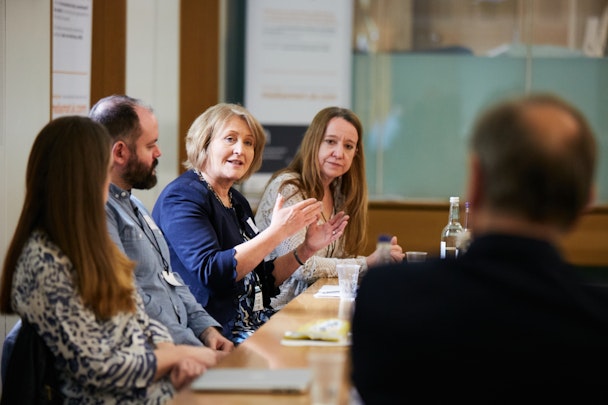Why the ad industry needs to help build a 'media smart' generation of children
Young people today grow up in a world of ubiquitous, tech-enabled commercial messaging with more need than ever to understand exactly what is being suggested, promised and sold to them.

The flip side is that this world is also creative and inspiring, where ideas come alive to entertain, engage and connect.
Media Smart exists to help the next generation make the most of this world. We’re a not-for-profit organisation that creates free educational materials for schools and youth organisations, and for teachers, parents and guardians.
Our goal is to help young people understand and critically evaluate the advertising and media they come across in their daily lives.
We are the advertising industry's corporate social responsibility programme for 7-14 year olds and are single-minded in our goal to make sure the next generation will grow up as media smart and resilient as possible.
As part of this mission we held an event – ‘Creating a Media Smart Generation’ – today at Portcullis House in Westminster to bring the issue of media literacy and, particularly, boys’ body image, right to the heart of parliament and policy making.
We were hosted by Andrew Bowie MP, with an audience that included MPs, NGOs, charities, the advertising industry, and those most affected by this issue – young people themselves.
Andrew emphasised that the importance of media literacy to young men and women cannot be overestimated, especially in today’s complex digital world. This was followed by a screening of the Boys’ Biggest Conversation, a shocking and funny 15-minute film which I urge you to watch.
It was created with First News and is part of a wider Media Smart campaign, supported by the NSPCC and Childline, to encourage young men to talk about body image and the effect it has on their mental wellbeing.
The film sparked a thought provoking panel session that included Children’s Commissioner for England, Anne Longfield OBE, Nicolette Smallshaw (head of education, First News), Grania Hyde-Smith (National Services Communications Manager, NSPCC), and Craig Donahy (head of community and insight, SuperAwesome and editor-in-chief, Popjam).
Anne emphasised that digital and emotional literacy is a missing link in young people’s education and that it should be a core part of the curriculum. She also said that the conversation around children and media is maturing and there is an increasing focus on greater responsibility from tech companies.
While schools are good at helping children to understand how to stay safe online, they are not yet preparing them to be ready to be digitally literate and emotionally resilient, she argued. This is particularly of importance around the transition between primary and secondary schools.
Anne said digital literacy should be compulsory for year 6 and year 7 students to help them be ready for the pressure they experience and to address the idea that going offline isn’t socially bad. “We need to support children with digital literacy from the age of four onwards and give them the confidence to switch the thing off,” she commented.
For my part, I believe that the importance of children being media smart is only going to grow in the coming months and years. As a responsible industry, we must be at the forefront of these changes and lead the campaign to champion media literacy.
Children might be digital natives but they need our help to be emotionally resilient and understand the commercial and technological world they are growing up in.
I encourage the whole of the advertising and media industry, including brand owners, to promote the work of Media Smart with the teachers and parents you know.
Better still, anyone representing a company aspiring to be a responsible citizen of the sector – advertiser, media owner, agency – should get involved with their investment and support. Media Smart is currently reaching over half a million young people in the UK but we need more help to get to every single one of the 4 million 7-14 year olds.
Mark Lund is UK group chief executive of McCann Worldgroup and chairman of Media Smart. Read more about Media Smart and get involved by contacting Rachel Barber-Mack, director of Media Smart at: mediasmart@adassoc.org.uk
